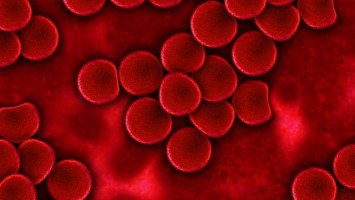
The immunotherapy drug nivolumab in combination with standard chemotherapy more than doubled response rates and improved overall survival in patients with acute myeloid leukaemia (AML), according to preliminary findings presented by researchers at The University of Texas MD Anderson Cancer Center.
The results from a Phase Ib/II ongoing study which paired nivolumab with azacitidine (AZA) were presented at the 58th Annual Meeting of the American Society for Hematology (ASH) in San Diego.
Patients in the study had previously demonstrated poor complete response and overall survival.
“The combination of AZA and nivolumab showed a response rate of 34 percent that compares favourably to a historic response rate of 12 to 15 percent with AZA alone,” said Naval Daver, M.D., assistant professor of Leukaemia. “The median overall survival also improved in comparison to historical medians with AZA alone, but longer follow-up is required to confirm the durability and overall survival benefit that could be obtained.”
The study, which followed 51 patients with an average age of 69, also reported side effects in 25 to 30 percent of patients, with the most common being pneumonitis, colitis, skin rash and elevated liver enzymes, all of which were managed with early recognition and systemic steroids.
Median overall survival for patients treated with AZA and nivolumab was 9.3 months compared with a historic median of 4.7 months for patients treated with AZA alone.
“We are working closely with colleagues in MD Anderson’s immunotherapy platform to interrogate baseline and on treatment biomarkers of response and to identify additional targetable checkpoints in AML and myelodysplastic syndrome,” said Daver. “We hope these immune checkpoint approaches will be an additional tool to improve outcomes in leukaemia patients.”
Source: ASH 2016